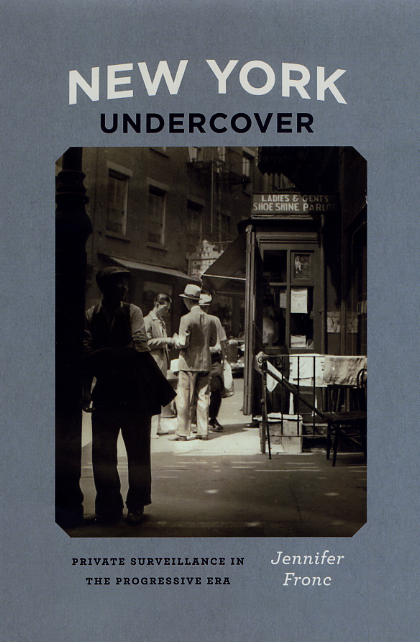The Emergence of the Modern Surveillance State

During the Progressive Era, social activists in New York employed private investigators to seek out behavior they viewed as sexually promiscuous, politically undesirable, or downright criminal. The goal was to uncover the roots of society’s problems, and the information collected eventually empowered government regulators in the Progressive era and beyond, strengthening a federal state that grew increasingly repressive in the interest of pursuing a national security agenda.
Jennifer Fronc’s history of this urban movement, New York Undercover: Private Surveillance in the Progressive Era, follows these investigators—often journalists or social workers with no training in surveillance—on their information-gathering visits to gambling parlors, brothels, and meetings of criminal gangs and radical political organizations. Drawing on the hundreds of detailed reports that resulted from these missions, Fronc reconstructs the process by which organizations like the National Civic Federation and the Committee of Fourteen generated the knowledge they needed to change urban conditions. Revealing the central role of undercover investigation in both social change and the constitution of political authority, New York Undercover narrates previously untold chapters in the history of vice and the emergence of the modern surveillance state.
Fronc recently discussed her book as part of a series at New York City’s Tenement Museum called Tenement Talks, a series of lectures, readings, panel discussions and programming that provides perspective on New York City’s rich culture. NYC’s Channel 13 filmed the event, and we are pleased to present it below.